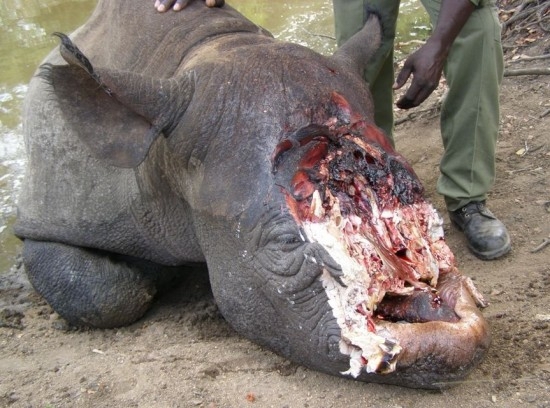
It’s a low day for animal conservationists (not to mention animal lovers in general) now that China has reversed a 25-year ban on the use of endangered tiger and rhino parts for “medical” purposes, the effects of which will very well be felt worldwide.
Earlier this week China’s State Council released a statement announcing that powdered forms of rhino horn and bones from dead tigers can now legally be used in medical research and healing, if they come from farmed animals.
“Rhino horns and tiger bones used in medical research or in healing can only be obtained from farmed rhinos and tigers, not including those raised in zoos,” the statement reads. “Powdered forms of rhino horn and bones from dead tigers can only be used in qualified hospitals by qualified doctors recognized by the State Administration of Traditional Chinese Medicine.”
An attempt to control poaching?
The use of engendered animals in traditional Chinese medicine is unfortunately nothing new, and is an underlying reason for the current poaching epidemic. Rhinos and tigers are already among the most poached animals on the planet, and conservationists are worried the news will fast-track the extinction of what are already two endangered animals.
“China’s decision to support the cruel trade in tiger and rhino body parts will hasten the demise of these animals, who are already threatened with extinction,” Camille Labchuk, a lawyer and executive director of Canadian animal law organization Animal Justice, tells us. “This devastating move flies in the face of a decades-long effort to save these animals and prevent them being slaughtered for so-called ‘medicines’ that simply do not work.”
WWF urgently calls on China to maintain the ban on tiger bone and rhino horn trade, and close captive facilities where tigers are bred for commercial purposes.
Please RT and support our call for change! 🙏🏻
— WWF 🐼(@WWF) October 29, 2018
It’s unclear why China came to the decision to reverse the ban (especially in the wake of the domestic ban on the sale of ivory, which went into effect earlier this year), but some believe it could be an ill-fated attempt to control poaching.
Meanwhile, others say it’s a push towards the lucrative, $100 billion practice of traditional Chinese medicine, which is currently practiced by more than 500,000 medical practitioners.
“A small number of individuals stand to make a lot of money perhaps at the price of the species,” Peter Knights, chief executive of WildAid, an environmental advocacy group based in San Francisco, tells the New York Times. “[The decision] comes completely out of the blue and with no rationale.”
A slippery slope
In its statement, China’s State Council assures that, “regulation on the sales and use of these products will be strengthened, and any related actions will be authorized, and the trade volume will be strictly controlled.”
Yet animal advocates fear the new law will simply lead to illegal products being sold under the ruse of legality, incentivizing poachers even further.
“It is deeply concerning that China has reversed its 25-year-old tiger bone and rhino horn ban, allowing a trade that will have devastating consequences globally”, Margaret Kinnaird, WWF Wildlife Practice Leader said in a statement. “With wild tiger and rhino populations at such low levels and facing numerous threats, legalized trade in their parts is simply too great a gamble for China to take.”
With only around 3,900 left in the wild, every tiger counts. But China’s latest move to lift the ban on tiger bone trade threatens to put a dark cloud over the world’s wild 🐯
— WWF 🐼(@WWF) October 29, 2018
No scientific proof
In addition to concerns that allowing the legal use of tiger bones and rhino horns will devastate global populations, community leaders point out there’s no scientific proof that using such parts has any medical benefits.
“There is absolutely zero scientific evidence that parts from tigers, lions, rhinos and other threatened species contain healing powers that can benefit human health,” Dr. John Goodrich, the chief scientist and tiger program director at Panthera, the global wild cat conservation organization, said in a statement.
“Instead, the legal trade in wildlife parts has proven lethal for some of our planet’s most imperiled and precious species, fuelling demand from the black market and the slaughter of animal populations in the wild. In reversing this ban, China has helped to legalize the execution and extinction of the magnificent tiger.”
Protecting the animals we can
Although the announcement from China is a devastating blow to conservation efforts and has drawn massive criticism from experts worldwide, Save the Rhino’s International CEO Cathy Dean doesn’t believe the country will reverse its decision.
“It seems pretty clear that China is not going to back down on this announcement anytime soon, given the loss of face that this would entail. And the money at stake,” she tells us. “The big question is, how can we ensure that no harm is done, as a result of China’s decision, to Africa and Asia’s populations of wild rhinos? Answering this question is going to be a top priority for Save the Rhino International and other like-minded organizations.”
